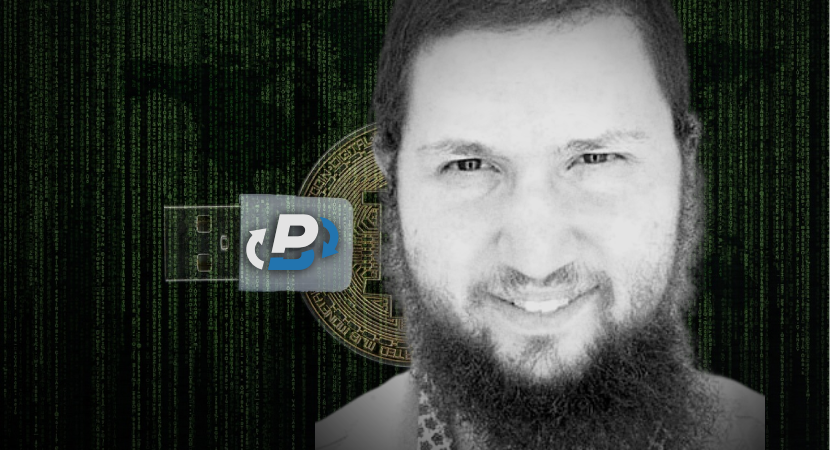Even in the crypto industry, irregularities occur sometimes, and one notable vulnerable occurrence is the case of Avram Eisenberg, who is a crypto trader known for orchestrating one of the largest exploits in history. He gained notoriety for his role in exploiting Mango Markets, a decentralized trading platform on the Solana blockchain. Let's talk a bit about Avraham Eisenberg crypto journey. At first, he recognized a specific vulnerability in the platform's Oracle Price system, which feeds price data to the platform's smart contracts to execute trades and manage collateral. So, in October 2022, Eisenberg manipulated the system by artificially inflating the price of the Mango token (MNGO) by taking large positions on both the spot and perpetual futures markets so as to drive up the token's price. After the loans were obtained, he withdrew assets valued at about $116 million from the platform, and as a result, Mango Markets lost all of its liquidity and became insolvent. In this article, we at PlasBit will discuss all circumstances revolving around the whole saga.
The Early Days of Avraham Eisenberg
Avraham Eisenberg is a well-known personality in the cryptocurrency space, renowned for his technological prowess and contributions to the field of digital finance. His path from an inquisitive tech enthusiast to a well-known figure in blockchain and cryptocurrency is characterized by his noteworthy accomplishment in detecting flaws within the defi ecosystem. This enabled him to siphon a huge amount of funds from Mango Markets while penetrating their vulnerabilities so that awareness would be made of the issue to be contained. Avraham Eisenberg was born in the mid-90s in the United States and maintains a relatively low profile when it comes to his personal life. Known to be private, he rarely shares details about his family or personal interests outside of his professional work.
How He Gained Over 35k Followers on Twitter
Avraham Eisenberg gained over 35k followers on Twitter by leveraging a mix of engaging content and consistent interaction, where he regularly shared valuable insights on finance, technology, and cryptocurrency, establishing himself as a thought leader. By engaging with trending topics and providing timely analyses, he attracted a wide audience, networked with influencers, and participated in high-visibility discussions so as to amplify his reach. His commitment to responding to followers and fostering a sense of community further boosted his popularity as he maintained a consistent posting schedule and stayed active in relevant online communities.
How Eisenberg’s Actions Impacted the Mango Markets Platform
The world of DeFi witnessed a significant exploit in October 2022 when Avraham Eisenberg crypto exploits allegedly manipulated the Mango Markets platform. In this section, we will dive into how Eisenberg's maneuvers impacted Mango Markets and their current state in today’s world. First, Eisenberg exploited a weakness in Mango Markets' price oracle system and took a loan. This massive loan effectively drained the platform's liquidity pool, leaving other users struggling to access their deposited funds, and the sudden price drop of MNGO after Eisenberg's withdrawal further worsened the situation for Mango Markets.
Details of His Relationship and Interactions with Mango Markets
Avraham Eisenberg crypto fame skyrocketed in the community due to his interest in generating profits on Mango Markets, a decentralized finance (DeFi) platform built on the Solana blockchain that allows users to trade, lend, and borrow digital assets.
The Incident
When Eisenberg carried out what he later called a "highly profitable trading strategy" in October 2022, his relationship with Mango Markets entirely transformed. About $116 million was taken out of the platform as a result of this tactic. He employed a strategy that many saw as a sophisticated attack rather than conventional trading, one that involved taking advantage of the mechanics of the site. Manipulating the value of the Mango token (MNGO), the native token of the Mango Markets platform, was the central component of Eisenberg's plan as he was able to manipulate the price of the MNGO token by taking gigantic holdings and utilizing it as collateral. Due to this inflated valuation, he was able to borrow large amounts of money from the platform and that eventually reduced its liquidity.
The Aftermath
The incident affected Eisenberg and Mango Markets in significant ways as it brought along both legal scrutiny and public attention to Eisenberg. He admitted his conduct in public and maintained that, although unconventional, his method was compliant with the platform's standards. The DeFi community was divided over this position regarding the nature of these exploits and the moral issues they raise. The immediate impact was catastrophic for Mango Markets as users of the platform were unable to access their funds due to a liquidity crisis. The event further brought to light flaws in the risk management procedures and platform architecture, which led to a review of the security mechanisms in place.
The Broader Impact on DeFi
The Mango Markets incident had ripple effects across the DeFi ecosystem. It served as a stark reminder of the potential risks associated with decentralized platforms, where traditional safeguards and regulatory frameworks are often absent. In response to the incident, many DeFi platforms began implementing more stringent security measures and collateral management protocols. Moreover, the incident spurred a broader discussion about the role of governance in DeFi. Mango Markets, like many DeFi platforms, relies on decentralized governance, where token holders vote on key decisions. The aftermath of the exploit saw increased participation in governance as the community worked to address the platform's vulnerabilities and restore user confidence.

How Eisenberg Exploited Mango Markets and the Consequences of His Actions
Decentralized finance (DeFi) systems, such as Mango Markets, have gained popularity in the erratic realm of cryptocurrency trading due to their creative and transparent methods of handling financial transactions, even though they are susceptible to exploits. In one prominent instance, Avraham Eisenberg carried out a well-known attack on Mango Markets in October 2022, which had significant consequences for both the platform and the larger DeFi ecosystem. Eisenberg found a flaw in Mango's collateral appraisal procedure, which he took advantage of. The consequences of his actions will be discussed here.
1. Immediate Aftermath
Mango Markets suffered immediate and serious repercussions from the attack. Due to its inability to compensate for Eisenberg's large withdrawals, the platform became insolvent. As a result, there was a liquidity crisis that resulted in the freezing of other users' assets and raised severe concerns about the stability and security of decentralized exchanges. Mango Markets halted operations to evaluate the damage done and find a way out. Unexpectedly, Eisenberg took responsibility in public for the exploit and maintained that he was only taking advantage of a platform defect and that his activities were within the confines of legitimate market activity.
2. Long-term Consequences
Eisenberg's ruse had far-reaching effects in the long run as it prompted DeFi platforms, such as Mango Markets, to strengthen their code inspection procedures, bolster security measures, and take more decisive action against vulnerabilities. Law enforcement and regulators were also made aware of the situation, which emphasized the need for more precise legislation in order to shield investors from harm and stop similar attacks. Mango Markets suffered severe harm to user confidence, and even after the platform eventually started up again, it was difficult for customers to trust it again. As a result, many users spread their assets over several platforms in an effort to mitigate risk. The vulnerability also spurred a more general ethical discussion regarding taking advantage of DeFi platform weaknesses, with viewpoints ranging from supporting moral behavior to guarantee a robust and long-lasting ecosystem to view such activities as catalysts for progress.
Allegations, Trial, Conviction, And Sentencing Status of Eisenberg
Avi Eisenberg found himself at the center of a legal storm following his maneuvers on the DeFi platform Mango Markets. Following the exploit, Eisenberg defended his actions, framing them as a legitimate "arbitrage" strategy. He even proposed a settlement with Mango Markets, offering to return part of the funds in exchange for dropping any legal action. However, these attempts did little to appease authorities, and he fled to Israel. In December 2022, Eisenberg was arrested in Puerto Rico by the FBI special unit and indicted on charges of commodities fraud, commodities manipulation, and wire fraud. However, his defense team countered by challenging the very essence of the charges. They argued that digital assets weren't commodities under the law, and his actions, while unconventional, didn't constitute fraud. The trial, held in the U.S. District Court for the Southern District of New York, lasted eight days. In a significant development of the crypto space, the jury found Eisenberg guilty on all charges.This verdict established a legal precedent for holding individuals accountable for manipulative behavior within the DeFi landscape. Eisenberg's sentencing is scheduled for July 29, 2024 where he faces a potential maximum sentence of 20 years in prison for wire fraud and 10 years for the other charges.The final sentence will likely consider factors like the severity of the crime, the amount stolen, and any potential remorse shown by Eisenberg.
The Avi Eisenberg case carries significant weight for the future of DeFi. It demonstrates the willingness of authorities to pursue criminal charges for manipulative activities within this digital financial ecosystem. Additionally, it raises questions about how regulations might be adapted to address the unique challenges posed by DeFi platforms. The outcome of Eisenberg's sentencing will be closely watched by the crypto community as it could set a precedent for future DeFi-related legal cases. Moreover, the case highlights the need for clearer regulations within the DeFi space to ensure stability and protect investors. As the industry continues to evolve, regulators will likely face increasing pressure to develop frameworks that address the potential for manipulation and exploitation.
Public Opinions and Reactions From Followers of Eisenberg’s Twitter Account
Avraham Eisenberg's Twitter followers had strong reactions to the Mango Markets drama, influencing public opinion with a mixture of support, criticism, and interest. Eisenberg, who is well-known for his work in the field of decentralized finance (DeFi), has encountered a wide range of viewpoints following the controversial attack on Mango Markets, a decentralized marketplace running on the Solana blockchain. Supporters of Avraham Eisenberg crypto exploits believe that his activities revealed significant weaknesses in the protocol of Mango Markets. They argue that despite its controversy, his exploit ultimately strengthens the DeFi ecosystem by drawing attention to flaws that require fixing. These supporters frequently compliment his technological skill and see his actions as an extreme but necessary kind of security testing. On the other hand, critics were outspoken in their criticism. Considering that the exploit caused Mango Markets consumers to suffer large financial losses, they describe Eisenberg's conduct as immoral and comparable to committing theft.
This group asserts that technical proficiency should not take precedence above ethical considerations and calls for compensation and accountability for all parties affected. The moral ramifications of taking advantage of vulnerabilities are a common topic of discussion, regardless of the motivations behind the activities. Also, among the following, there is an interesting minority that is neither totally supportive nor totally critical. The wider ramifications of the story for DeFi security and legal frameworks are of greater relevance to these people. They engage in discussions about the need for more robust security measures and clearer regulations to prevent similar incidents in the future. Overall, Eisenberg's Twitter following reflects a microcosm of the broader DeFi community, grappling with the complex interplay between innovation, security, and ethics. The Mango Markets saga has undoubtedly ignited a critical conversation about the future of decentralized finance and the responsibilities of those who navigate its uncharted waters.
Conclusion
By now, you should have an idea of who the man was and what he stood for. You should carefully check out crypto investment options before using them to avoid falling into the trap of scams. Not all countries place premium focus on regulatory oversight, so you need to do proper research, as we have aided many people in our PlasBit posts. With the negative impacts the scam has had on the crypto industry, do not forget that it is risky, and you should follow the risk management strategies provided by PlasBit to protect your funds. Always be updated, and stay safe.







